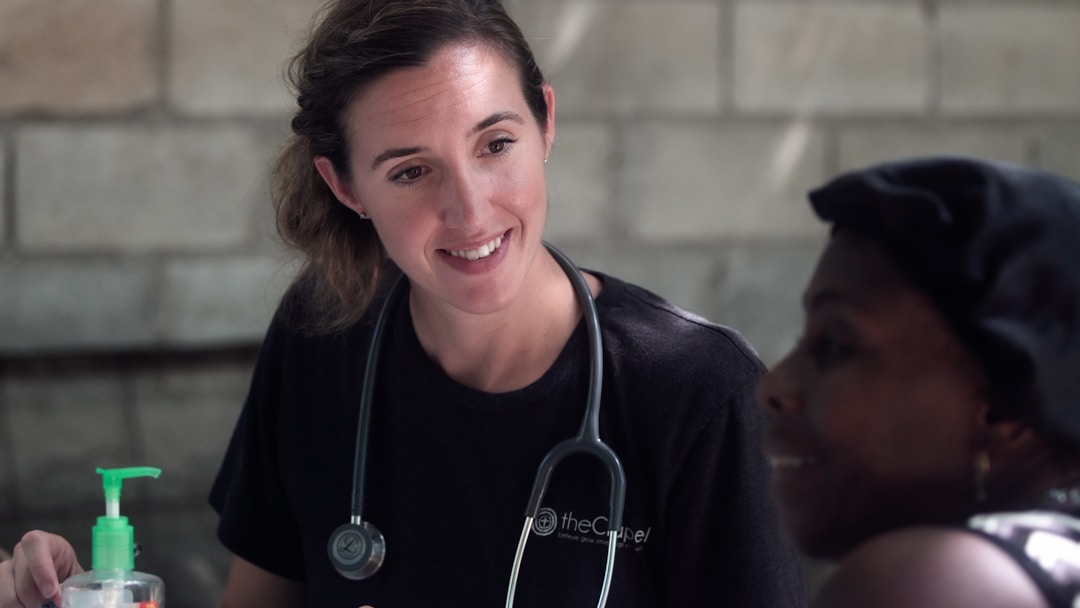Alzheimer’s disease can pose a significant hardship for both the patient and the people surrounding them. The cognitive decline associated with this condition leaves family members seeking support and resources to effectively handle it. In this article, we will delve into various facets of supporting a loved one diagnosed with Alzheimer’s, from the initial stage of understanding the diagnosis to the end stage, providing constant care and comfort.
Understanding the Diagnosis

Understanding an Alzheimer’s diagnosis is the first step toward helping your loved one. Often, a diagnosis is met with a plethora of emotions, primarily shock and sadness, as well as confusion about what the future holds. It’s vital to get information about the progression of Alzheimer’s, the changes it brings to the person’s cognitive and physical abilities, and how one prepares to deal with these shifts.
To do so, tap into all available resources. Reach out to healthcare providers to discuss the prognosis and management of the disease. There are also reputable Alzheimer’s organizations that provide extensive information on the disease and support for all associated parties as well. Areas to focus on should include the importance of medication adherence, maintaining a healthy lifestyle, opportunities for cognitive stimulation, and what healthcare assistance may be needed.
Education is a powerful tool when faced with a disease like Alzheimer’s. The more family members know about the disease, the better prepared they are to provide care and compassionate support for their loved ones. It enables them to understand the changes in behavior, memory, or thinking that may arise and not confuse them with voluntary actions.
Communicating Effectively
Managing expectations is a significant portion of coping with Alzheimer’s. It is essential to discuss and address the condition openly among family members, ensuring everyone is on the same page. This includes siblings, children, and anyone else who may be involved in providing care. Clear communication fosters unity, reduces misunderstandings, and enhances the overall support system.
Similarly, discussing the situation with the person diagnosed with Alzheimer’s helps them to adjust and cope better. However, it should be done sensitively, explaining things in a manner they can understand. It’s important to reassure them of your unwavering support, love, and understanding during these difficult times.
Also, cultivate the habit of listening actively to your loved one’s concerns and feelings. Be there to offer comfort, empathy, and understanding, allowing them to express their fears and frustrations. By maintaining open lines of communication, not only will you foster trust, but the patient will also feel valued and understood.
Ensuring Proper Healthcare

Appropriate healthcare provisions are essential in managing Alzheimer’s disease. This includes regular check-ups and medical care, specialized rehabilitative services, and medication management. Ensuring the patient adheres to the prescribed medical regimen is crucial in slowing the progress of the disease. Moreover, it’s advised to establish a reliable primary care provider who understands the patient’s history and is adept at managing Alzheimer’s.
Advanced planning can take some of the stress off the caregiver’s shoulders. This can include documenting the person’s medical wishes, designating a healthcare proxy, and discussing long-term care options. On these matters, it may be beneficial to seek professional advice to ensure all matters are in order.
It’s also worth exploring home healthcare options, as these services afford patients the comfort and familiarity of their own homes while they receive care. Individuals with Alzheimer’s are also at a higher risk of developing other health conditions. For instance, they may experience changes in eating habits, such as loss of appetite or forgetting to eat, leading to weight loss and malnutrition. Swallowing difficulties can also arise, making it challenging to eat and increasing the risk of choking or aspiration pneumonia. A home healthcare professional can help manage some of these issues.
Staying Emotionally Balanced
To be the best possible caregiver, it’s important to take care of your emotional health. Caregiver burnout is a genuine concern that can impact both your health and your ability to provide care. Therefore, it’s essential to take time out for self-care, maintain social connections, and seek counseling or support when needed. You cannot pour from an empty cup; looking after oneself is part of looking after the patient.
Addressing and managing the emotional impact of the diagnosis is beneficial for every family member. Feelings of guilt, grief, and fear are common. Professional counseling can provide coping strategies and techniques to handle these emotions. Support groups also offer space to share experiences and provide mutual understanding and companionship.
Cultivating compassion, patience, and understanding towards the person with Alzheimer’s is fundamental. This disease can change their behavior and personality in profound ways; it’s important to bear in mind that these changes are symptoms of the disease, not the individual. Continuing to spend quality time and forming positive moments for the person can bring joy and meaningfulness to their life.
Planning for The Future
Planning for the future as soon as possible can provide peace of mind and prevent hasty decisions. This includes financial planning, estate planning, and having in-depth discussions about any end-of-life preferences. Working with a financial planner and a lawyer who specializes in elder law can help ensure you have all the necessary documents and plans in place.
Consider the financial impact of long-term care. Government programs, private funds, and insurance may help cover these costs. It’s also wise to address living arrangements – home modifications may be needed, or the person may eventually need to move into a residential care facility.
Make sure to involve the Alzheimer’s patient in these decisions as much as they can comprehend. It gives them a feeling of control and ensures their preferences are taken into account. Incorporating them in planning also helps honor their dignity and autonomy.
Learning to Adapt
Alzheimer’s is a constantly evolving disease, and adaptability is crucial. As the disease progresses, the person’s needs and behavior will change. Learning to be adaptable and flexible can reduce stress and make the caregiving journey smoother.
Safety is a growing concern as Alzheimer’s progresses. Home safety measures include installing bathroom aids, removing trip hazards, ensuring adequate lighting, and possibly implementing measures to prevent wandering. Technology can also be leveraged for safety measures, with devices to monitor movement and manage medication.
It’s also advisable to adapt communication and interaction styles to meet the cognitive abilities of the person. This comes with observing, understanding their point of view, and patience. Creative ways of engaging them, like art, music, and old pictures, can help tap into their preserved cognitive abilities and evoke happiness.
Appreciating the Moments

While caregiving for someone with Alzheimer’s is assuredly challenging, it’s also important to find joy in the journey. Yes, there will be struggles and difficulties, but there will also be moments of clarity, love, and beautiful connection. These moments serve as a reminder of the person’s essence that is still there underneath the veil of disease.
Practicing gratitude for the relationships and shared experiences with the person with Alzheimer’s can be healing. It’s essential to honor their life, dignity, and worth, even in the face of debilitating illness.
Allow time for emotional connection, laughter, reminiscing, and making new memories, no matter how simple they might be. Finding positivity in the midst of adversity helps alleviate stress and enhances the quality of life not just for the person with Alzheimer’s but for the caregiver as well.
Overall, an Alzheimer’s diagnosis is not the end of the world. With accurate information, appropriate resources, effective communication, comprehensive healthcare, emotional balance, future planning, and adaptability, families can navigate through this journey while still appreciating the moments of connection and joy. Remember that seeking support is not a sign of weakness but a beacon of love and dedication towards your loved one. You are not alone in this journey, and there are communities and organizations ready to extend their support and guidance.






















